-
 Bitcoin
Bitcoin $117500
2.15% -
 Ethereum
Ethereum $3911
6.19% -
 XRP
XRP $3.316
10.79% -
 Tether USDt
Tether USDt $1.000
0.01% -
 BNB
BNB $787.2
2.24% -
 Solana
Solana $175.2
4.15% -
 USDC
USDC $0.9999
0.00% -
 Dogecoin
Dogecoin $0.2225
8.40% -
 TRON
TRON $0.3383
0.28% -
 Cardano
Cardano $0.7868
6.02% -
 Stellar
Stellar $0.4382
9.34% -
 Hyperliquid
Hyperliquid $40.92
7.56% -
 Sui
Sui $3.764
7.63% -
 Chainlink
Chainlink $18.48
10.66% -
 Bitcoin Cash
Bitcoin Cash $582.1
1.88% -
 Hedera
Hedera $0.2601
6.30% -
 Avalanche
Avalanche $23.33
4.94% -
 Ethena USDe
Ethena USDe $1.001
0.02% -
 Litecoin
Litecoin $122.3
2.04% -
 UNUS SED LEO
UNUS SED LEO $8.969
-0.27% -
 Toncoin
Toncoin $3.339
0.86% -
 Shiba Inu
Shiba Inu $0.00001287
4.30% -
 Uniswap
Uniswap $10.43
7.38% -
 Polkadot
Polkadot $3.861
5.08% -
 Dai
Dai $1.000
0.02% -
 Bitget Token
Bitget Token $4.513
3.41% -
 Monero
Monero $267.7
-6.18% -
 Cronos
Cronos $0.1499
4.14% -
 Pepe
Pepe $0.00001110
5.15% -
 Aave
Aave $284.9
8.28%
Who are the main players in an ICO?
ICOs involve founders, investors, legal counsel, marketers, auditors, and exchange platforms, each playing crucial roles in the project's success and regulatory compliance.
Mar 24, 2025 at 05:36 pm
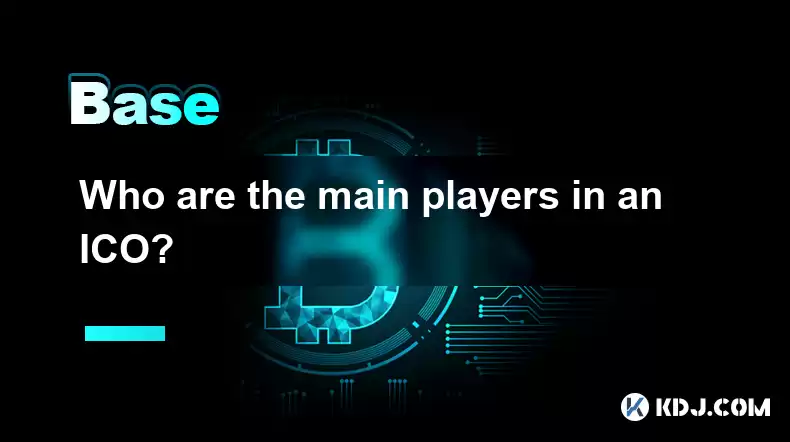
Key Points:
- Project Founders and Team: The core individuals driving the ICO, responsible for the project's vision, development, and execution. Their experience and reputation are crucial.
- Investors (Buyers): Individuals or entities purchasing tokens in exchange for cryptocurrency or fiat currency. Their investment fuels the project's development.
- Legal Advisors: Essential for ensuring compliance with securities laws and regulations, protecting both the project and investors.
- Marketing and Public Relations: Responsible for raising awareness and attracting investors through various channels.
- Auditors and Security Experts: Crucial for verifying the project's code, identifying vulnerabilities, and ensuring the security of the platform.
- Exchange Platforms (Secondary Market): Listings on exchanges allow token holders to trade their tokens after the ICO.
Who are the main players in an ICO?
An Initial Coin Offering (ICO) involves a complex interplay of various key players, each with distinct roles and responsibilities. Understanding these roles is critical for both prospective investors and project teams. Let's delve into the details of each key player:
1. Project Founders and Team:
The heart of any ICO is its founding team. These individuals conceive the project, develop the technology, and ultimately guide its growth. Their experience, track record, and reputation significantly influence investor confidence. A strong team with proven expertise in blockchain technology, business development, and marketing increases the likelihood of success. A detailed whitepaper often showcases the team's qualifications and backgrounds.
2. Investors (Buyers):
Investors are the lifeblood of an ICO. They contribute cryptocurrency or fiat currency in exchange for newly issued tokens. These investors can range from individual retail investors to large institutional funds. Their investment provides the capital necessary for the project's development and implementation. Sophistication in evaluating blockchain projects and understanding the risks involved is crucial for investors.
3. Legal Advisors:
Navigating the complex regulatory landscape of ICOs is paramount. Legal advisors play a critical role in ensuring compliance with securities laws and regulations in relevant jurisdictions. They draft legal documents, advise on regulatory requirements, and help mitigate legal risks for both the project and its investors. Choosing experienced legal counsel specializing in blockchain technology and securities law is essential.
4. Marketing and Public Relations:
Successful ICOs require effective marketing and public relations strategies. This team is responsible for raising awareness of the project, attracting investors, and managing the project's public image. They employ various channels, including social media, online advertising, and press releases, to reach potential investors and build community engagement. The effectiveness of marketing directly impacts the success of the token sale.
5. Auditors and Security Experts:
Security and transparency are paramount in the cryptocurrency world. Independent auditors verify the project's code, identify potential vulnerabilities, and ensure the platform's security. Security experts play a crucial role in protecting the project from hacking attempts and other security breaches. Regular audits and security assessments build investor confidence and protect the integrity of the project.
6. Exchange Platforms (Secondary Market):
Once an ICO concludes, the tokens are often listed on cryptocurrency exchanges. These exchanges provide a platform for token holders to buy, sell, and trade their tokens. The listing on reputable exchanges increases the liquidity and accessibility of the tokens, benefiting both the project and its investors. The choice of exchanges can significantly impact the token's price and trading volume.
7. Underwriters (Sometimes Involved):
Similar to traditional IPOs, some ICOs may utilize underwriters. These are typically financial institutions that assist in the token sale process, providing expertise in marketing, investor relations, and regulatory compliance. They may also help to price the tokens and manage the distribution process. However, underwriters are not always involved in ICOs.
Frequently Asked Questions:
Q: What is the role of a smart contract in an ICO?
A: A smart contract is a self-executing contract with the terms of the agreement between buyer and seller being directly written into lines of code. It automates the token distribution process to investors once they complete their purchase.
Q: What are the risks associated with investing in an ICO?
A: ICOs are inherently risky investments. There's a high chance of losing your entire investment due to project failure, regulatory issues, security breaches, or market volatility. Thorough due diligence is crucial.
Q: How can I identify a legitimate ICO?
A: Look for a well-defined project roadmap, a transparent team with verifiable experience, a comprehensive whitepaper, and independent audits of the smart contract code. Be wary of overly ambitious promises and projects lacking transparency.
Q: What are the legal implications of participating in an ICO?
A: The legal landscape surrounding ICOs is constantly evolving. It's essential to understand the applicable securities laws and regulations in your jurisdiction before investing. Seek professional legal advice if needed.
Q: What happens after an ICO is completed?
A: After the token sale, the project team focuses on developing and launching the platform or product as outlined in the whitepaper. The tokens may be listed on cryptocurrency exchanges, allowing holders to trade them. The project's long-term success depends on its ability to deliver on its promises.
Disclaimer:info@kdj.com
The information provided is not trading advice. kdj.com does not assume any responsibility for any investments made based on the information provided in this article. Cryptocurrencies are highly volatile and it is highly recommended that you invest with caution after thorough research!
If you believe that the content used on this website infringes your copyright, please contact us immediately (info@kdj.com) and we will delete it promptly.
- XRP ETF, Bitcoin ETF, and Japan: A New Era for Crypto Investing?
- 2025-08-08 14:30:12
- Crypto, Congress, and Bills: Navigating the Regulatory Landscape in 2025
- 2025-08-08 14:30:12
- Union Jack Oil, Unused Gas, and Bitcoin: A New York Minute on UK's Crypto-Energy Play
- 2025-08-08 14:50:12
- Bitcoin Price: Bullish Flag Points to $123K Breakout?
- 2025-08-08 14:50:12
- Crypto Group's WNBA Dildo Toss: Meme Coin Mania or Just Plain Dumb?
- 2025-08-08 14:55:13
- Stablecoins, Hong Kong, and On-Chain Finance: Navigating the Regulatory Maze
- 2025-08-08 12:30:12
Related knowledge
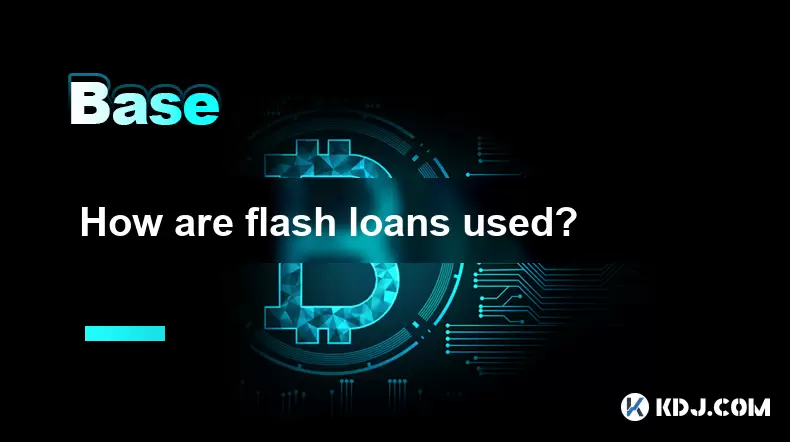
How are flash loans used?
Aug 08,2025 at 01:08pm
Understanding Flash Loans in Decentralized FinanceFlash loans are a unique innovation within the decentralized finance (DeFi) ecosystem, allowing user...
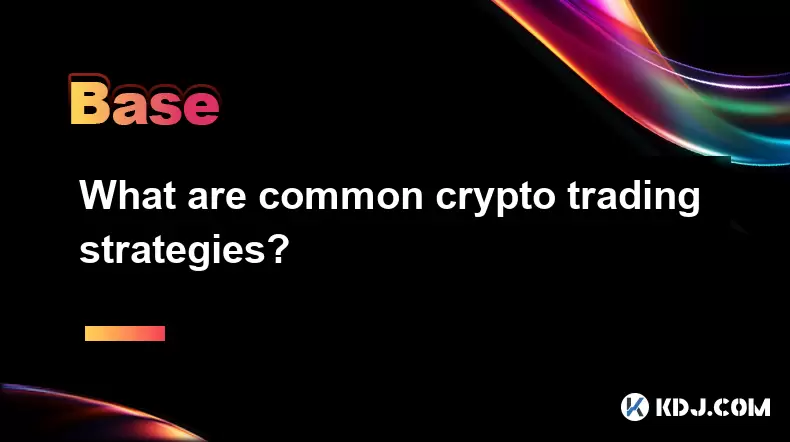
What are common crypto trading strategies?
Aug 08,2025 at 12:42pm
Understanding Trend Following in Crypto TradingTrend following is one of the most widely adopted crypto trading strategies due to its simplicity and a...
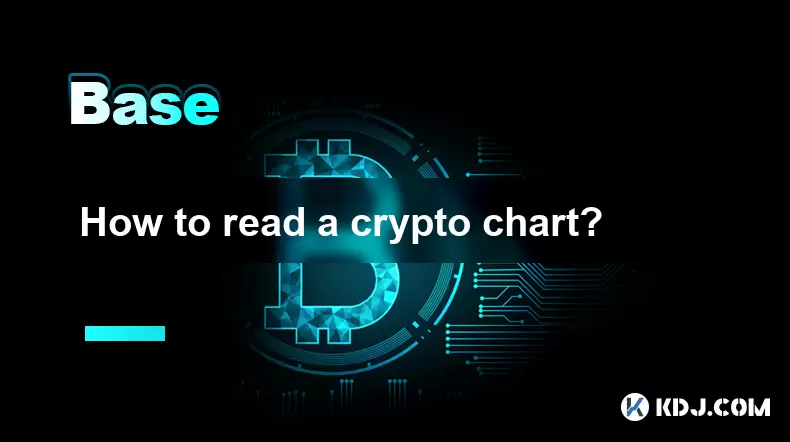
How to read a crypto chart?
Aug 08,2025 at 10:35am
Understanding the Basics of a Crypto ChartA crypto chart is a visual representation of the price movements of a cryptocurrency over time. These charts...
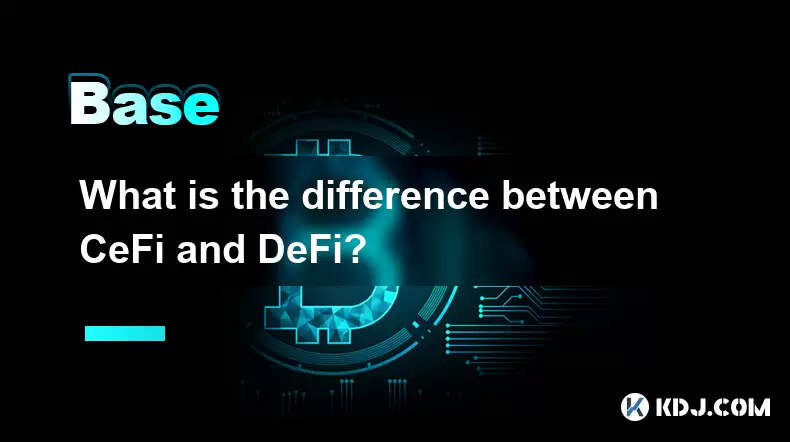
What is the difference between CeFi and DeFi?
Jul 22,2025 at 12:28am
Understanding CeFi and DeFiIn the world of cryptocurrency, CeFi (Centralized Finance) and DeFi (Decentralized Finance) represent two distinct financia...
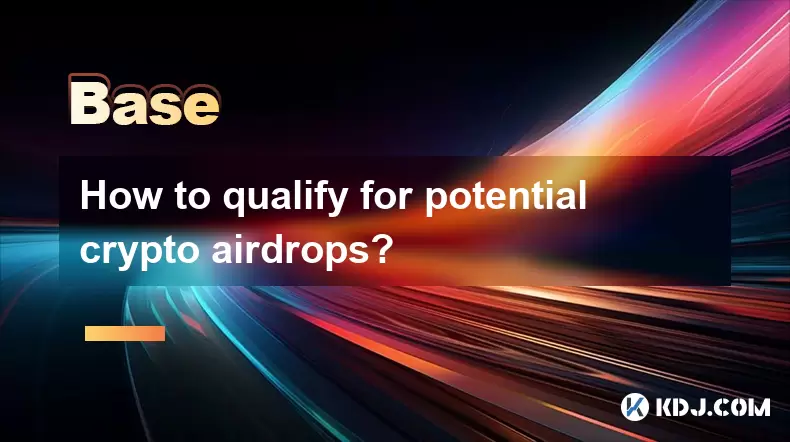
How to qualify for potential crypto airdrops?
Jul 23,2025 at 06:49am
Understanding What Crypto Airdrops AreCrypto airdrops refer to the distribution of free tokens or coins to a large number of wallet addresses, often u...
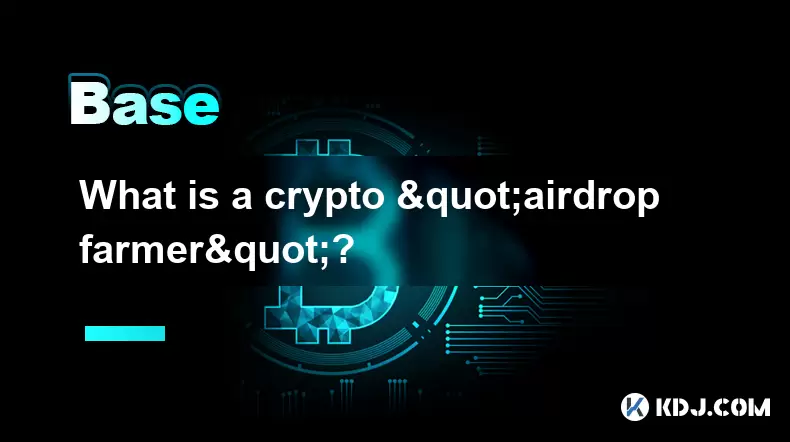
What is a crypto "airdrop farmer"?
Jul 24,2025 at 10:22pm
Understanding the Role of a Crypto 'Airdrop Farmer'A crypto 'airdrop farmer' refers to an individual who actively participates in cryptocurrency airdr...

How are flash loans used?
Aug 08,2025 at 01:08pm
Understanding Flash Loans in Decentralized FinanceFlash loans are a unique innovation within the decentralized finance (DeFi) ecosystem, allowing user...

What are common crypto trading strategies?
Aug 08,2025 at 12:42pm
Understanding Trend Following in Crypto TradingTrend following is one of the most widely adopted crypto trading strategies due to its simplicity and a...

How to read a crypto chart?
Aug 08,2025 at 10:35am
Understanding the Basics of a Crypto ChartA crypto chart is a visual representation of the price movements of a cryptocurrency over time. These charts...

What is the difference between CeFi and DeFi?
Jul 22,2025 at 12:28am
Understanding CeFi and DeFiIn the world of cryptocurrency, CeFi (Centralized Finance) and DeFi (Decentralized Finance) represent two distinct financia...

How to qualify for potential crypto airdrops?
Jul 23,2025 at 06:49am
Understanding What Crypto Airdrops AreCrypto airdrops refer to the distribution of free tokens or coins to a large number of wallet addresses, often u...

What is a crypto "airdrop farmer"?
Jul 24,2025 at 10:22pm
Understanding the Role of a Crypto 'Airdrop Farmer'A crypto 'airdrop farmer' refers to an individual who actively participates in cryptocurrency airdr...
See all articles

























































































